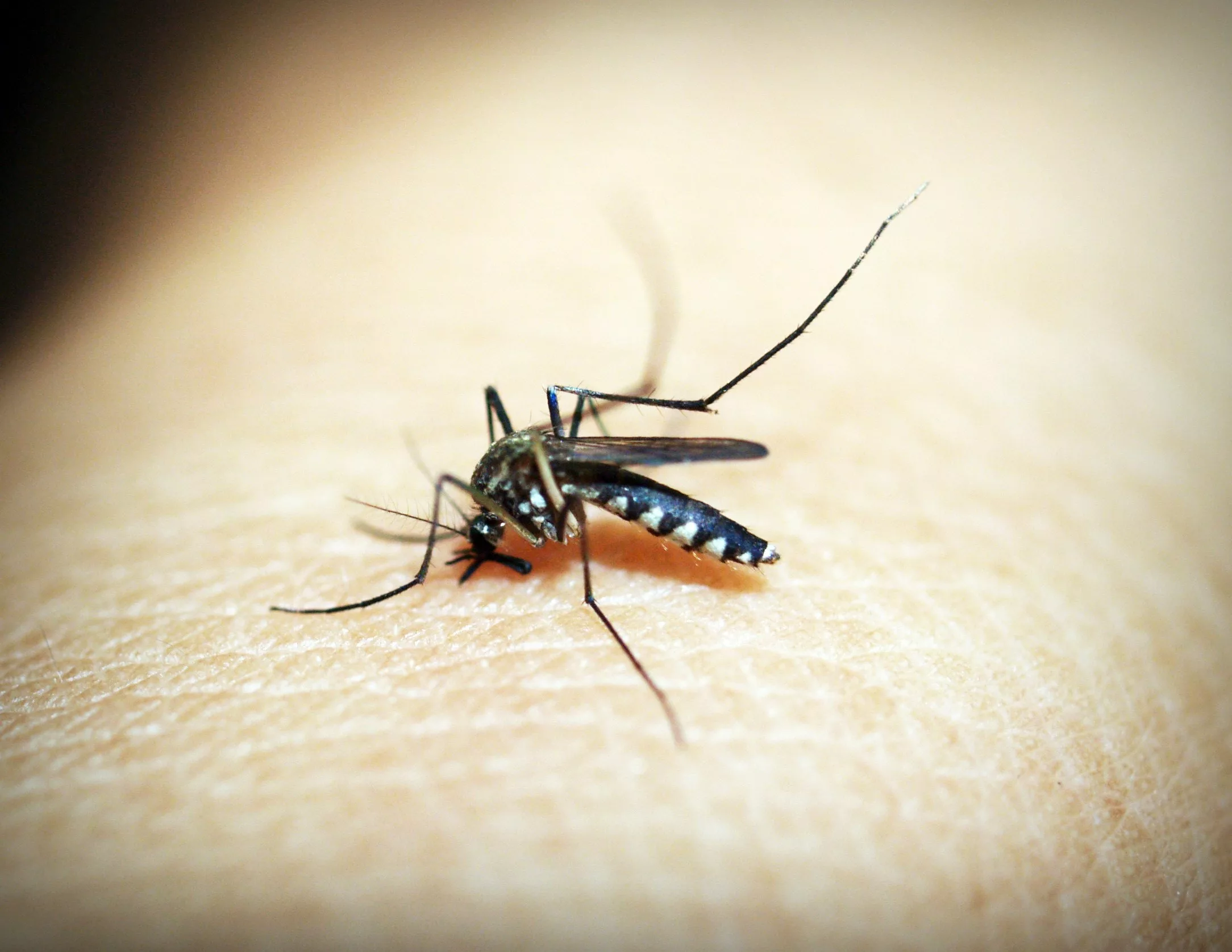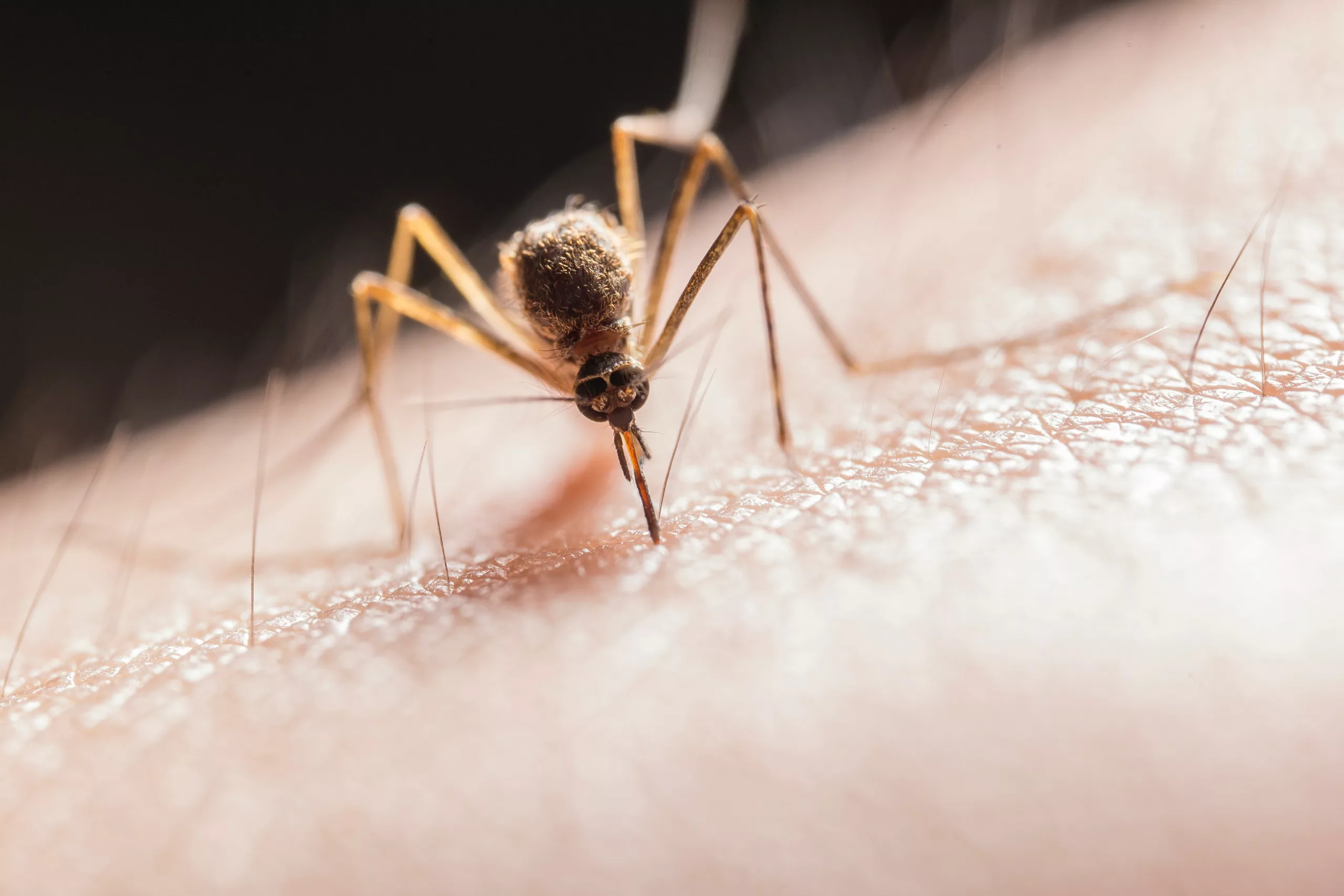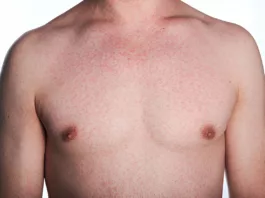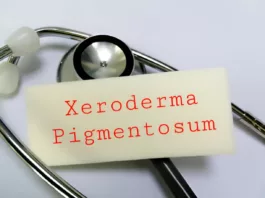Skeeter Syndrome, also known as ‘mosquito syndrome’, is an intense allergic reaction to mosquito bites. Although mosquito bites are common and normally result in moderate symptoms. However, Skeeter Syndrome can result in anaphylaxis – a potentially life-threatening state.

What is Skeeter Syndrome?
Skeeter Syndrome is an exaggerated immune response to mosquito bites1Simons, F. E. R., & Peng, Z. (1999). Skeeter syndrome. Journal of Allergy and clinical immunology, 104(3), 705-707. Sometimes, our bodies become allergic to polypeptides(subunits of proteins) found in a mosquito’s saliva. Whenever a mosquito bites us, it injects its saliva into our skin to prevent blood from clotting. The polypeptides in the mosquito’s saliva trigger an immune response that manifests outwardly as symptoms of inflammation.
Symptoms of Skeeter Syndrome
Skeeter Syndrome symptoms may appear within hours of a mosquito bite and last longer than those of a typical mosquito bite. Rather than a small itchy bump, the allergic response may expand from a few centimeters to more than ten centimeters wide area. Depending upon a person’s immune status and, sometimes, the species of mosquito, symptoms may range from moderate to severe in intensity. Common symptoms include:
- Itchiness
- Swelling
- Redness
- Pain
- Warmth
- Hives
- Blistering
- Bruising
- Low-grade fever
- Breathing difficulties
- Loss of consciousness
- Anaphylaxis – a medical emergency
Contact the emergency helpline or visit the nearest emergency center immediately if you experience any of the symptoms of anaphylaxis. These include swelling in the throat, faintness, shortness of breath, chest wheeze, and large hives.
Skeeter Syndrome: Causes
Some people get Skeeter Syndrome, while some only experience localized, mild itching after a mosquito bite. It is because our immune system varies from person to person. People having Skeeter syndrome have an immune system that overreacts to the polypeptides in the saliva of the same mosquito species and hence results in severe symptoms.
This is particularly observed in extremes of age, i.e., toddlers, and elderly patients, who have a weak immune system. Their bodies react differently to how our bodies behave when we get bitten by a mosquito.
Who is at risk of Skeeter Syndrome?
Certain conditions and age increase the risk of acquiring Skeeter Syndrome:
- Toddlers are more susceptible compared to adults. With underdeveloped immunity, toddlers often present with moderate to severe symptoms. Since they also have a greater tendency to scratch mosquito lesions, their initial symptoms often aggravate and may even present with subsequent infections.
- Long-term steroid therapy that dampens the immune response
- Those having auto-immune diseases
- history of allergies or asthma
- People with type O blood are more prone than others to have a severe response to mosquito bites.2Engler, R. J., & Crisp, H. C. (2017). Mosquito hypersensitivity: Clinical updates. Stinging Insect Allergy: A Clinician’s Guide, 203-230
- Being bitten by a specie of mosquitoes to which a person wasn’t exposed before.
Diagnosing Skeeter Syndrome
Taking a thorough medical history is crucial for diagnosis.3Pérez-Vanzzini, R., González-Díaz, S. N., Arias-Cruz, A., Palma-Gómez, S., Yong-Rodríguez, A., Gutiérrez-Mujica, J. J., … & Ibarra, J. A. (2015). Hypersensitivity to mosquito bite manifested as Skeeter síndrome. Revista Alergia Mexico (Tecamachalco, Puebla, Mexico: 1993), 62(1), 83-87., If your Doctor suspects Skeeter Syndrome, he may put particular emphasis on questions related to mosquito bites, such as if a mosquito has recently bitten you, whether you have previously had allergic responses to mosquito bites, or if you’ve recently traveled to a new region. He will then perform a general physical examination, along with examining the site of the lesion.
Skeeter Syndrome VS Cellulitis
Skeeter Syndrome may appear similar to cellulitis – a common bacterial skin infection that causes redness, swelling, and pain in the infected area of the skin. A physician can quickly distinguish between the two based on the time of onset.
Skeeter syndrome has a rapid onset after the mosquito bite and, most of the time, needs emergency treatment. In contrast, Cellulitis has a relatively slow onset as the visible signs and symptoms start appearing after bacterial infection of the bite marks.
Treatment Options
Treatment is aimed at alleviating the symptoms and preventing further complications.
Home Remedies:
The following home remedies help to reduce discomfort:
- Applying a cold compress to the affected area
- Elevating the affected area to lessen the swelling
- Taking a cool bath with baking soda or oatmeal to soothe the skin
- Avoiding scratching the affected area to prevent infection
Medications:
Your doctor may also prescribe you the following:
- Oral antihistamines, such as diphenhydramine or loratadine, to reduce itching and swelling
- Topical corticosteroids, such as hydrocortisone cream, to reduce inflammation
- Topical calamine lotion to manage itching and irritation
- Injectable Antihistamines and steroids are given in cases of severe symptoms or anaphylaxis.
If you experience difficulty breathing, chest pain, or swelling of the face or lips, seek medical help immediately: these are signs of anaphylaxis – a potentially lethal condition.
Preventing Skeeter Syndrome
Preventing Skeeter Syndrome can be challenging, especially during the summer months when mosquitoes are most active. However, we can always reduce our risk of being bitten by a mosquito if we follow these preventative measures:
- Use mosquito repellent: Use an effective mosquito repellent that contains DEET or picaridin, and reapply it every few hours.
- Wear protective clothing: Wear long sleeves and pants, and consider treating your clothing with permethrin, an insecticide that repels mosquitoes.
- Avoid peak mosquito hours: Mosquitoes are most active during dawn and dusk, so try to avoid spending time outside during these times.
- Remove standing water: Mosquitoes breed in standing water, so remove any sources of standing water around your home, such as birdbaths, clogged gutters, and old tires.
How long does Skeeter Syndrome last?
Skeeter Syndrome symptoms tend to persist longer than those of a typical mosquito bite. In most cases, the symptoms associated with Skeeter Syndrome can last anywhere from three to ten days before subsiding. This prolonged duration of symptoms sets it apart from the usual timeframe of relief experienced after a regular mosquito bite.
It is important to note that individual experiences may vary, and in some instances, symptoms may resolve sooner or persist for a slightly extended period. Medication can also help resolve the condition quickly.
Is there a test for it?
While there is no specific lab test designed specifically for Skeeter Syndrome, healthcare providers may employ certain diagnostic procedures to assess your allergic reaction to mosquito saliva. Your doctor may conduct a skin or blood test to determine if you have an allergy to mosquito bites. These tests can help confirm the presence of an allergic response. Additionally, laboratory tests may be utilized to eliminate the possibility of other conditions that may present with similar symptoms. While no definitive test exists for Skeeter Syndrome, these diagnostic approaches assist in evaluating and differentiating the condition from other potential causes of allergic reactions.
Conclusion
Skeeter Syndrome is a rare allergic reaction to mosquito bites. It usually produces moderate symptoms but, at times, may lead to potentially life-threatening outcomes. The significance of timely identification and treatment can’t ignore.
The best we can do is to prevent mosquito bites in the first place: applying mosquito repellants, using mosquito nets, modifying our lifestyle, and maintaining proper sanitation to eradicate mosquito breeding sites in our vicinity.
Refrences
- 1Simons, F. E. R., & Peng, Z. (1999). Skeeter syndrome. Journal of Allergy and clinical immunology, 104(3), 705-707
- 2Engler, R. J., & Crisp, H. C. (2017). Mosquito hypersensitivity: Clinical updates. Stinging Insect Allergy: A Clinician’s Guide, 203-230
- 3Pérez-Vanzzini, R., González-Díaz, S. N., Arias-Cruz, A., Palma-Gómez, S., Yong-Rodríguez, A., Gutiérrez-Mujica, J. J., … & Ibarra, J. A. (2015). Hypersensitivity to mosquito bite manifested as Skeeter síndrome. Revista Alergia Mexico (Tecamachalco, Puebla, Mexico: 1993), 62(1), 83-87.





